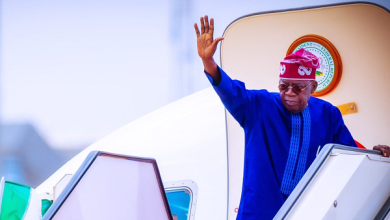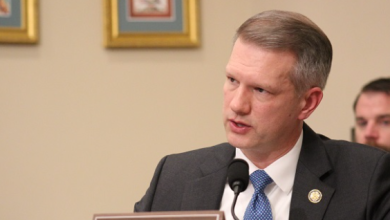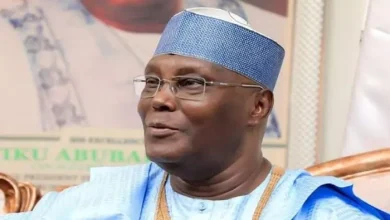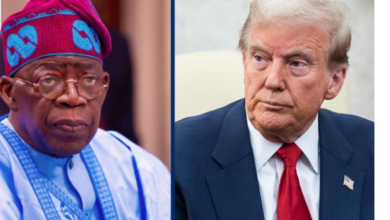Trump labels Nigeria ‘country of particular concern,’ cites attacks on Christians
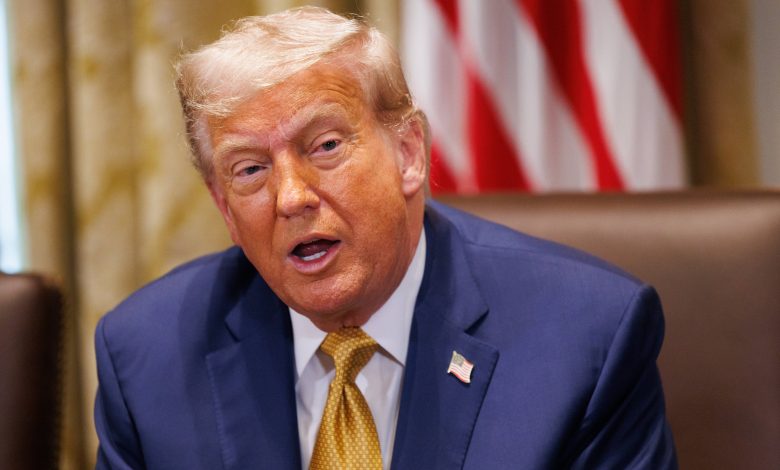
United States President Donald Trump, has placed Nigeria on a list of nations he describes as “Countries of Particular Concern,” alleging widespread attacks and killings of Christians across the country.
In a post shared Friday on his Truth Social platform, Trump claimed that Christianity in Nigeria faces “an existential threat,” accusing what he called “radical Islamists” of orchestrating a “mass slaughter” of believers.
“Thousands of Christians are being killed in Nigeria. The United States cannot stand by while such atrocities continue,” Trump wrote, pledging to take further steps to address the situation.
The president said he has directed Congressman Riley Moore and House Appropriations Chairman Tom Cole to probe reports of persecution and present recommendations to U.S. lawmakers.
“I am officially designating Nigeria as a country of particular concern.
”This is only the beginning.When Christians or any group are being killed in such numbers, something must be done, ”he said.
Nigeria’s Federal Government swiftly rejected Trump’s assertions, describing them as unfounded and harmful to the country’s image.
Minister of Information and National Orientation, Mohammed Idris, said in a statement that the narrative of religious genocide is “false, divisive, and a gross distortion of the realities on the ground.”
According to Idris, Nigeria’s security challenges stem from terrorism and banditry that have affected citizens “irrespective of religion or ethnicity.”
“Extremist groups have attacked Muslims, Christians, and non-religious Nigerians alike,” the minister said. “It is inaccurate to frame these crimes as a campaign against a single faith.”
He noted that security operations between May 2023 and February 2025 had resulted in the death of over 13,500 insurgents and the rescue of nearly 10,000 hostages.
The minister also cited the arrest of senior Ansaru commanders and the conviction of more than 700 Boko Haram members as proof of ongoing progress in the fight against terrorism.
“These criminals target all who reject their ideology,” Idris added. “Our response must be collective, not sectarian.”
Earlier in October, Massad Boulos, Senior Adviser to Trump on Arab and African Affairs, met with President Bola Tinubu in Abuja, where he dismissed suggestions that Christians were being singled out for extermination.
Boulos maintained that extremist violence in Nigeria affects all communities, stating, “Those familiar with the situation know that terrorism in Nigeria has no tribe, colour, or religion.”
He emphasised that groups such as Boko Haram and ISIS have killed people from multiple faiths, often targeting Muslims even more frequently than Christians.
“Any loss of life is tragic and we must work together to stop this cycle of violence, ” he said.
The Nigerian Senate has also moved to address the growing international debate. On October 14, lawmakers formed a 12-member ad hoc committee to investigate allegations of Christian persecution and to produce a factual report for diplomatic engagement.
Senate President Godswill Akpabio tasked the committee with verifying statistics and ensuring that Nigeria’s response abroad is backed by credible evidence.
“We must engage our international partners with facts, not assumptions,” Akpabio said during the plenary.
The Christian Association of Nigeria (CAN) welcomed Trump’s comments but urged caution, stressing that the federal government must do more to safeguard vulnerable communities.
CAN President, Archbishop Daniel Okoh, said Christian villages and churches had repeatedly been attacked, leading to significant loss of lives and property.
“For too long, pleas for justice and protection have been met with slow or inadequate responses,” he said.
The association said it has documented hundreds of cases of violence, collaborated with international faith-based groups, and submitted reports to the International Criminal Court.
“The pain of bereaved Christian families should not be treated as statistics,” CAN stated.
In his response, Minister Idris reiterated that Nigeria’s Constitution guarantees freedom of religion and that leadership in the armed forces and police is drawn from diverse faith backgrounds.
“Foreign observers should avoid sensationalism and instead support our efforts to eliminate terrorism,” he said.
He called on the international media to verify facts before publishing reports that could inflame tensions or misrepresent Nigeria’s internal security situation.
